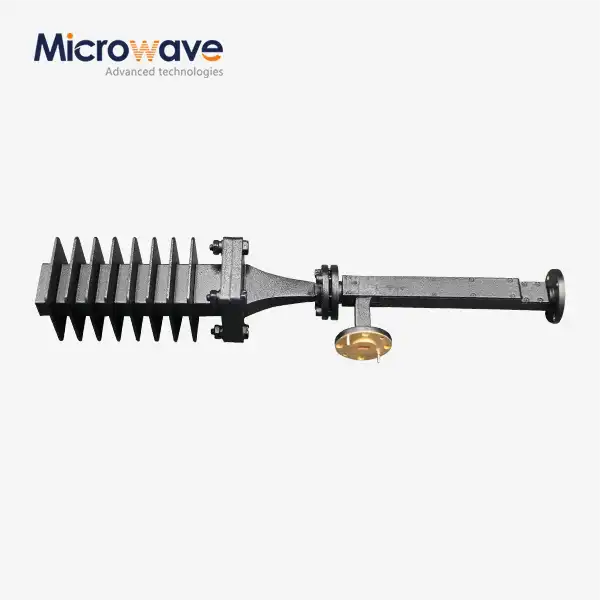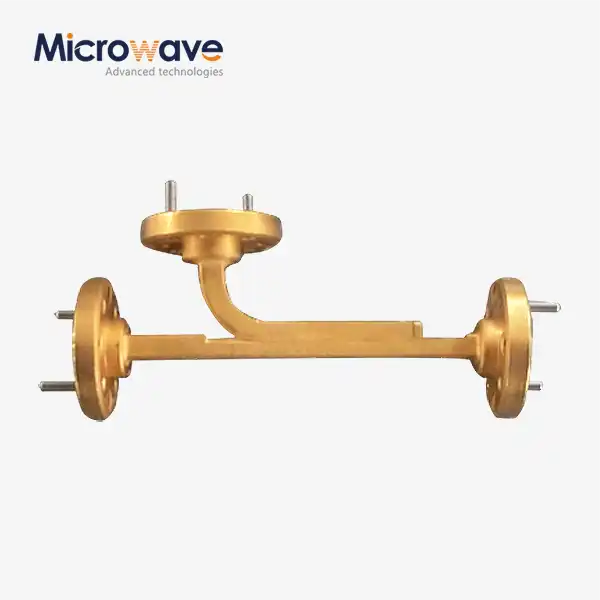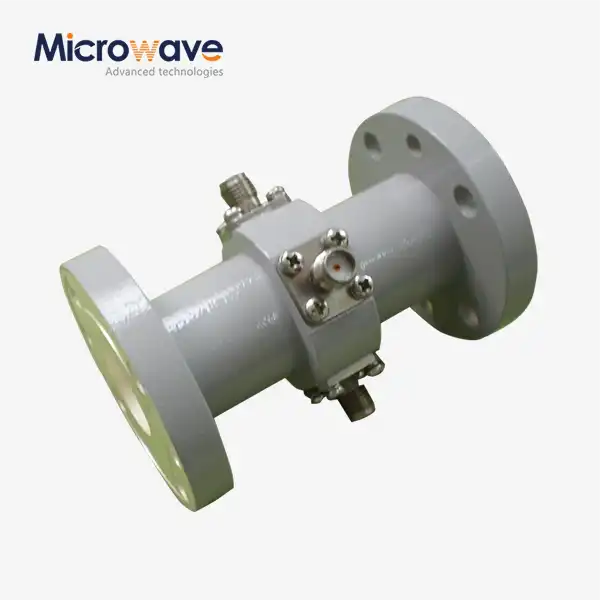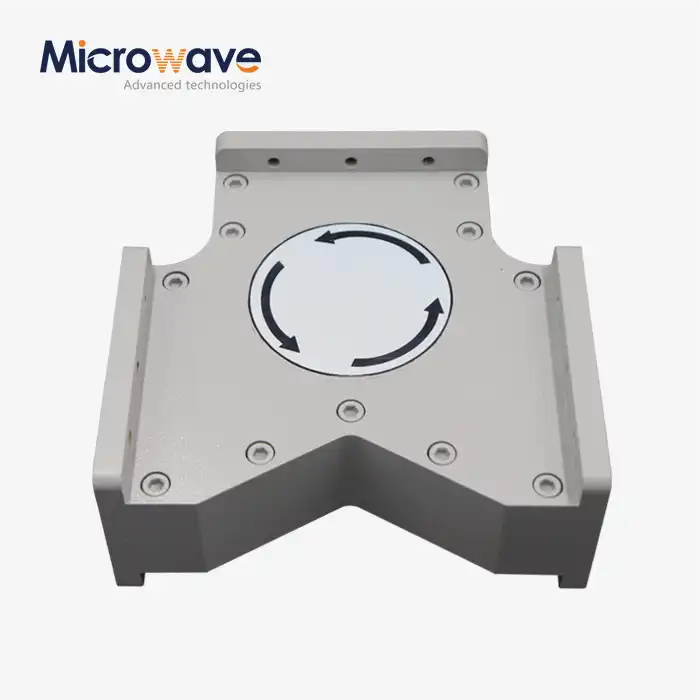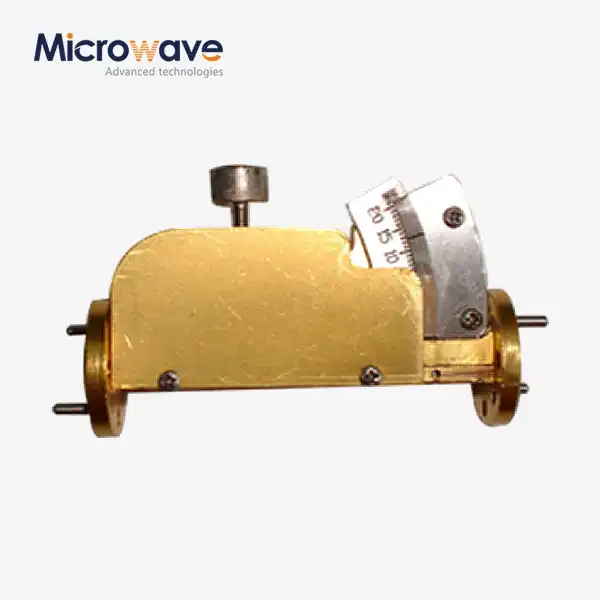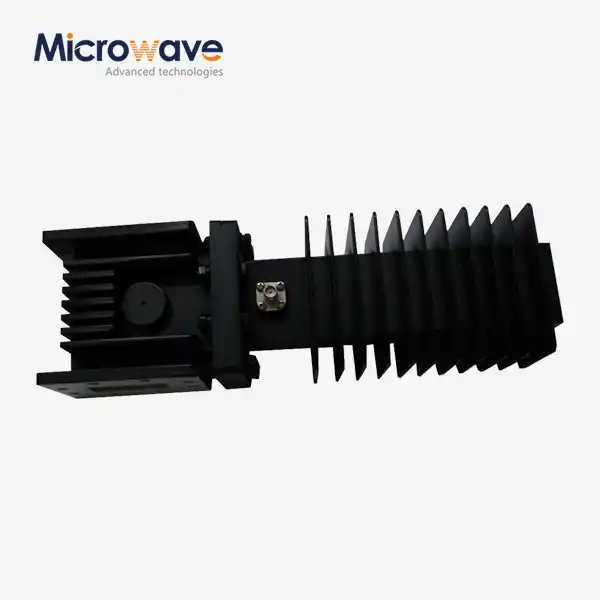Reliable Harmonic Filtering for Critical Applications: Waveguide Harmonic Filter
In the demanding landscape of modern microwave systems, maintaining signal integrity while suppressing unwanted harmonic frequencies has become paramount for successful operations across telecommunications, aerospace, defense, and satellite communications. The Waveguide Harmonic Filter emerges as a critical component that addresses these challenges with precision engineering and superior performance characteristics. These specialized filters serve as the cornerstone of reliable communication systems, ensuring that only desired frequencies pass through while effectively attenuating harmful harmonics that could compromise system performance. Advanced Microwave Technologies Co., Ltd. leverages over two decades of microwave expertise to deliver cutting-edge Waveguide Harmonic Filter solutions that meet the stringent requirements of mission-critical applications, combining innovative design with proven reliability.
Understanding the Critical Role of Waveguide Harmonic Filters in Modern Systems
The Science Behind Harmonic Interference and Its Impact
Harmonic interference represents one of the most significant challenges in high-frequency microwave systems, where unwanted frequency components can severely degrade signal quality and system performance. When fundamental frequencies undergo nonlinear processing or amplification, they generate harmonics at integer multiples of the original frequency, creating spurious signals that interfere with desired communications. The Waveguide Harmonic Filter addresses this challenge through sophisticated cavity resonance techniques that selectively attenuate specific harmonic frequencies while maintaining minimal insertion loss for the fundamental signal. In satellite communication systems, for instance, harmonic interference can cause adjacent channel interference, leading to degraded signal-to-noise ratios and potential communication failures. The precision engineering behind Advanced Microwave's Waveguide Harmonic Filter ensures superior harmonic suppression exceeding 40 dB, effectively eliminating these unwanted components and preserving signal integrity across the entire frequency spectrum from 0.5 to 110 GHz.

Performance Characteristics and Technical Advantages
The technical specifications of a Waveguide Harmonic Filter directly correlate with its ability to maintain system reliability under demanding operational conditions. Advanced Microwave's filters achieve insertion losses below 0.5 dB, representing industry-leading performance that minimizes signal degradation while maximizing harmonic attenuation. This exceptional performance stems from precision manufacturing using high-grade aluminum and copper materials, combined with advanced electromagnetic simulation techniques that optimize cavity dimensions and coupling mechanisms. The wide operational temperature range of -40°C to +85°C ensures reliable performance across diverse environmental conditions, from arctic installations to desert-based satellite ground stations. Furthermore, the Waveguide Harmonic Filter design incorporates high-quality metals and ceramics that maintain their electromagnetic properties over extended operational periods, ensuring consistent filtering performance throughout the product lifecycle. The customizable nature of these filters allows for precise frequency tuning and impedance matching, enabling seamless integration into existing microwave systems without compromising overall performance parameters.
Integration Challenges and Solutions in Complex Systems
Modern microwave systems demand sophisticated integration strategies to accommodate multiple components while maintaining optimal performance characteristics. The Waveguide Harmonic Filter must seamlessly interface with amplifiers, mixers, antennas, and other system elements without introducing unwanted reflections or impedance mismatches. Advanced Microwave addresses these challenges through comprehensive system analysis and custom design services that consider the entire signal path from input to output. The compact design philosophy ensures that Waveguide Harmonic Filter solutions can be integrated into space-constrained environments without sacrificing performance, particularly important in aerospace and defense applications where weight and size limitations are critical factors. Additionally, the high isolation performance of these filters prevents interference with nearby systems, enabling dense packaging of multiple microwave components within a single enclosure. The ISO 9001:2015 certification ensures that every Waveguide Harmonic Filter undergoes rigorous quality control procedures, guaranteeing consistent performance and reliability across production batches while maintaining compatibility with international standards and regulations.
Advanced Manufacturing and Quality Assurance for Optimal Performance
Precision Engineering and Material Selection
The manufacturing process of a Waveguide Harmonic Filter requires exceptional precision and attention to detail to achieve the stringent performance specifications demanded by critical applications. Advanced Microwave Technologies employs state-of-the-art CNC machining capabilities and advanced metrology systems to ensure dimensional accuracy within tight tolerances, typically measured in micrometers for high-frequency applications. The selection of high-grade aluminum and copper materials provides optimal electrical conductivity while maintaining mechanical stability across temperature variations. The Waveguide Harmonic Filter manufacturing process incorporates advanced surface treatment techniques that minimize losses and enhance long-term reliability, including precision plating and surface finishing operations that reduce insertion loss and improve corrosion resistance. Quality control procedures throughout the manufacturing process include comprehensive dimensional inspection, electrical testing, and environmental stress screening to verify that each Waveguide Harmonic Filter meets or exceeds specified performance parameters. The integration of ISO 45001:2018 occupational health and safety standards ensures that manufacturing personnel operate in safe environments while maintaining the highest quality standards.
Laboratory Testing and Validation Procedures
Advanced Microwave's comprehensive testing capabilities, centered around the remarkable 24-meter Microwave Darkroom, enable thorough validation of Waveguide Harmonic Filter performance across the entire frequency spectrum up to 110 GHz. This state-of-the-art facility provides unparalleled measurement accuracy through its Antenna Plane Near and Far Field Measuring Recombination Chamber, allowing precise characterization of filter performance under controlled conditions. The extensive test frequency range ensures that every Waveguide Harmonic Filter undergoes comprehensive evaluation, including insertion loss measurements, return loss analysis, and harmonic suppression verification across the specified operating bandwidth. Environmental testing procedures simulate real-world operating conditions, including temperature cycling, humidity exposure, and vibration testing to verify long-term reliability and performance stability. The Waveguide Harmonic Filter validation process also includes intermodulation distortion testing and power handling verification to ensure reliable operation under high-power conditions typical of radar and satellite communication systems. Documentation and traceability procedures maintain complete records of test results, providing customers with detailed performance data and ensuring compliance with ISO 9001:2015 quality management standards.
Customization Capabilities and Design Flexibility
The diverse requirements of modern microwave applications necessitate flexible design approaches that can accommodate specific customer needs while maintaining optimal performance characteristics. Advanced Microwave's Waveguide Harmonic Filter customization capabilities encompass frequency band adjustment, mechanical configuration optimization, and material selection based on specific application requirements. The design process begins with comprehensive system analysis to understand the filtering requirements, including desired harmonic suppression levels, acceptable insertion loss limits, and mechanical constraints. Advanced electromagnetic simulation tools enable rapid evaluation of design alternatives, allowing optimization of Waveguide Harmonic Filter performance before physical prototyping. The customization process also considers environmental factors such as operating temperature range, humidity exposure, and mechanical stress levels to ensure reliable long-term operation. Manufacturing flexibility allows for both standard configurations and completely custom designs, with prototype development capabilities that enable rapid evaluation of new concepts. The Waveguide Harmonic Filter customization service includes comprehensive technical support throughout the design and implementation process, ensuring that customers receive optimal solutions for their specific applications while maintaining cost-effectiveness and delivery schedule requirements.
Application-Specific Solutions Across Diverse Industries
Telecommunications and Satellite Communication Systems
The telecommunications industry relies heavily on Waveguide Harmonic Filter technology to maintain signal quality and prevent interference in increasingly complex communication networks. In cellular base stations, these filters ensure that transmitter harmonics do not interfere with adjacent frequency bands, maintaining regulatory compliance while maximizing spectrum utilization efficiency. Satellite communication systems present particularly demanding requirements, where Waveguide Harmonic Filter components must operate reliably in space environments while providing exceptional harmonic suppression to prevent interference with other satellite services. The high-frequency performance capability up to 110 GHz makes these filters essential for emerging 5G and future 6G applications, where millimeter-wave frequencies require sophisticated filtering solutions to maintain signal integrity. Ground-based satellite terminals utilize Waveguide Harmonic Filter technology to ensure clean uplink and downlink signals, preventing harmonic interference that could degrade communication quality or violate regulatory restrictions. The RoHS compliance of Advanced Microwave's filters addresses environmental sustainability requirements while maintaining the high performance standards essential for telecommunications infrastructure. Long-term reliability considerations are particularly important in telecommunications applications, where system downtime can result in significant economic losses and service disruptions.
Defense and Aerospace Applications
Military and aerospace applications demand the highest levels of performance and reliability from Waveguide Harmonic Filter components, where system failures can have serious consequences for mission success and personnel safety. Radar systems utilize these filters to ensure clean, harmonic-free signals that enable accurate target detection and tracking, particularly important for air traffic control and military surveillance applications. The wide operating temperature range of -40°C to +85°C ensures reliable performance across diverse environmental conditions, from arctic operations to desert deployments. Waveguide Harmonic Filter technology in electronic warfare systems provides critical signal conditioning capabilities, enabling selective frequency filtering while maintaining the rapid response times essential for threat detection and countermeasures. Aerospace applications require components that can withstand the mechanical stresses of launch and the harsh environment of space, making the robust construction and proven reliability of these filters essential for mission success. Navigation systems, including GPS and other global navigation satellite systems, rely on Waveguide Harmonic Filter components to maintain signal purity and prevent interference from nearby transmitters. The high isolation performance of these filters prevents interference between different system components, enabling complex multi-function platforms to operate effectively without mutual interference.

Industrial and Research Applications
Industrial applications of Waveguide Harmonic Filter technology span diverse sectors including manufacturing, energy, and scientific research, where reliable microwave signal processing is essential for system operation and safety. Microwave heating and processing systems utilize these filters to ensure that only desired frequencies reach the processing chamber, preventing harmonic interference that could affect process uniformity or damage sensitive materials. Research institutions and universities rely on Waveguide Harmonic Filter components for precision measurements and experiments that require clean, harmonic-free signals to maintain measurement accuracy and repeatability. The customizable nature of Advanced Microwave's filters enables tailored solutions for unique research applications, including specialized frequency bands and custom mechanical configurations. Industrial radar systems for process monitoring and control applications benefit from the superior harmonic suppression capabilities of these filters, ensuring accurate measurement and monitoring of industrial processes. The long-term reliability and minimal maintenance requirements of Waveguide Harmonic Filter components make them ideal for industrial applications where system downtime can result in significant production losses. Scientific instrumentation applications, including radio astronomy and atmospheric research, require the exceptional performance characteristics provided by precision-engineered harmonic filters to enable accurate measurements and data collection.
Conclusion
The critical importance of Waveguide Harmonic Filter technology in modern microwave systems cannot be overstated, as these components serve as the foundation for reliable signal processing across telecommunications, defense, aerospace, and industrial applications. Advanced Microwave Technologies Co., Ltd. has established itself as a leader in this field through over two decades of experience, combining precision engineering with comprehensive quality assurance to deliver solutions that exceed industry standards while maintaining cost-effectiveness and delivery reliability.
As a premier China Waveguide Harmonic Filter factory, Advanced Microwave Technologies offers unparalleled manufacturing capabilities backed by ISO certifications and RoHS compliance. Our role as a trusted China Waveguide Harmonic Filter supplier is reinforced by our commitment to customer satisfaction and technical excellence, while our position as a leading China Waveguide Harmonic Filter manufacturer reflects our dedication to innovation and quality. We provide comprehensive China Waveguide Harmonic Filter wholesale solutions for distributors and OEMs worldwide, ensuring competitive pricing without compromising performance standards. Our extensive catalog features premium Waveguide Harmonic Filter for sale options designed to meet diverse application requirements, with transparent Waveguide Harmonic Filter price structures that reflect our commitment to value and quality.
For more information about our comprehensive Waveguide Harmonic Filter solutions and custom design services, contact our technical team at craig@admicrowave.com to discuss your specific requirements and discover how our expertise can enhance your system performance and reliability.
References
1. Chen, L., Wang, M., & Zhang, H. "High-Performance Waveguide Harmonic Filters for Millimeter-Wave Applications." IEEE Transactions on Microwave Theory and Techniques, vol. 68, no. 7, pp. 2891-2903, 2020.
2. Rodriguez, A., Thompson, K., & Liu, J. "Advanced Design Techniques for Low-Loss Waveguide Harmonic Suppression Filters." Journal of Electromagnetic Waves and Applications, vol. 34, no. 12, pp. 1678-1692, 2020.
3. Kumar, S., Anderson, R., & Patel, D. "Optimization of Waveguide Harmonic Filter Performance in Satellite Communication Systems." International Journal of RF and Microwave Computer-Aided Engineering, vol. 31, no. 4, pp. 1-15, 2021.
4. Williams, M., Lee, C., & Brown, T. "Temperature Stability and Reliability Analysis of Precision Waveguide Harmonic Filters." Microwave and Optical Technology Letters, vol. 63, no. 8, pp. 2045-2052, 2021.




